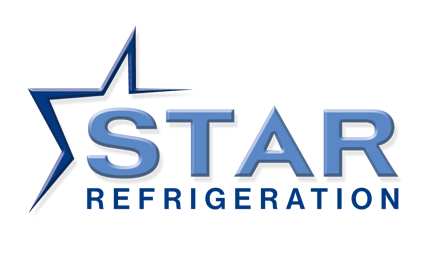Phase down of high GWP HFCs discussed at The Cold Chain Federation’s Compliance Week

Star Refrigeration’s Dr Rob Lamb will advise on the latest developments affecting the phase down of HFC refrigerants with high Global Warming Potential (GWP)
Group Sales and Marketing Director of Star Refrigeration, Dr Rob Lamb, will take to the stage at the Cold Chain Federation’s Compliance Week event to shed light on the impact that the F-gas phase down will have on the Temperature Controlled Storage & Distribution and food manufacturing industries, as the UK remains aligned to the EU F-gas regulation and European safety standards, post Brexit.
Running from Tuesday 26 to Wednesday 27 January 2021, the event, which is set to focus on health and safety, legislative and food safety compliance challenges in the cold chain, will provide attendees with the opportunity to hear from live guest speakers from Food Storage and Distribution, BRCGS, British Standard Institution (BSI), Goldfreeze and Star Refrigeration amongst others.
The Compliance Week conference will feature real-time discussions about areas of key focus for the sector post-Brexit, the F-gas regulations latest updates, the Covid-19 led PPE increase, the Food and Safety regulations, and the newly released ISO for temperature controlled distribution, as well as Q&A sessions.
Drawing on Star Refrigeration’s vast experience in assisting customers’ transition from environmentally damaging refrigerants to lower global warming potential (GWP) alternatives, Dr Lamb will provide in-depth insight into the implications of the F-gas regulations’ latest targets, including the phase down of widely used refrigerants such as R134a, R410A, R407C, R407F, R448A and R449A. He will delve into what it means for cold chain operators looking to maintain existing cooling equipment or invest in new refrigeration systems, and offer guidance on future planning by implementing sustainable, natural alternatives such as CO2 and ammonia.
Whilst the UK has left the European Union, most of the requirements of the EU regulations have been transferred into UK law and the government is set to ensure that any increase in ambition in the European regulation is matched or exceeded by the UK.
Dr Lamb said, “January 1st 2021 saw the next major phase down step in the phase down timeline, reducing from 63% to 45% of the 2015 baseline for CO2 equivalent refrigerant available for sale. This is a significant reduction which will undoubtedly put great pressure on end users to move to lower GWP refrigerants as the new average GWP for new systems is less than 1,000.”
“Most likely, existing gas prices will increase in the coming months and years, making servicing costlier and the gases harder to source. This puts greater emphasis on ensuring the leak tightness of existing systems until an exit strategy can be actioned to move towards lower GWP alternatives”.
As the phase down of F-gases continues, further restrictions on refrigerant CO2 equivalent thresholds are to be placed, and temperature controlled storage companies are advised to move towards lower GWP alternatives with GWP <500 and ideally <150 for multi-compressor systems to comply with the regulation. Such replacement options include HFC and HFO blends which are currently under trial. On the other hand, these new blends are costly and flammable – with prices expected to increase to meet industry demand.
Dr Lamb, said, “Now is the time to look at lower GWP alternatives for new plant or existing plants, for which the phase out of high GWP and the 2018 reduction in GWP has resulted in a move towards lower GWP alternatives as ‘drop in’ replacements.
“As the average GWP figure falls we move past a point where the replacement fluid is no longer categorised as a Group 1 (non-flammable) and we step into the Group 2L category of ‘mildly flammable’ fluids. This brings additional challenges in terms of gas detection and ventilation, requiring a detailed review of the existing plant design to ensure compliance with EN378 and DSEAR”.
Star has long been an advocate for the use of natural refrigerants such as CO2 and ammonia. Having been used for more than 100 years, ammonia is still the most efficient refrigerant known to date, with zero GWP. It is also inexpensive and has maintained a consistent presence within the industry for medium to larger scale applications, particularly with the advent of eco-design directive compliant low charge ammonia refrigeration systems.
With a GWP of 1, CO2 also provides a highly efficient and safe fluid, which can be used across a various range of small to medium size applications.
Compliance Week is a free to attend online event and provides a platform for attendees to share experiences regarding their refrigeration systems and ask questions about the low GWP alternatives that are available.
To register for Cold Chain Federation’s Compliance Week, sponsored by Star Refrigeration, please visit: https://www.coldchainfederation.org.uk/cold-chain-compliance-week/
